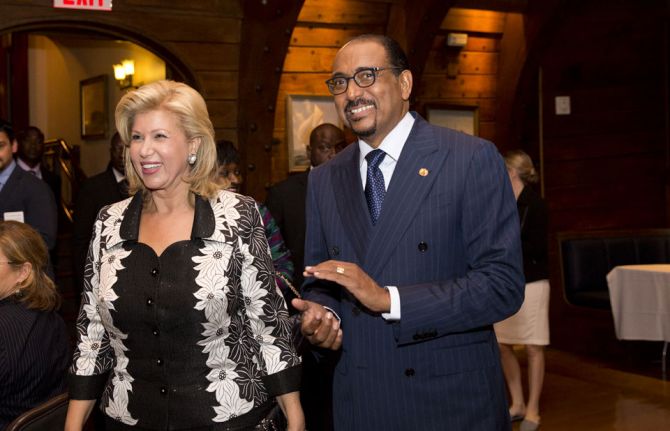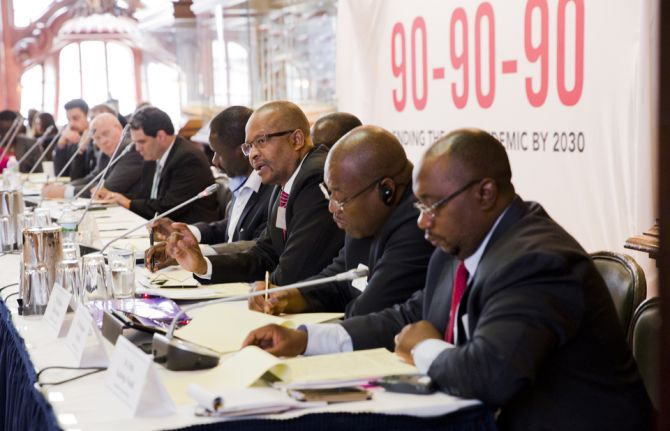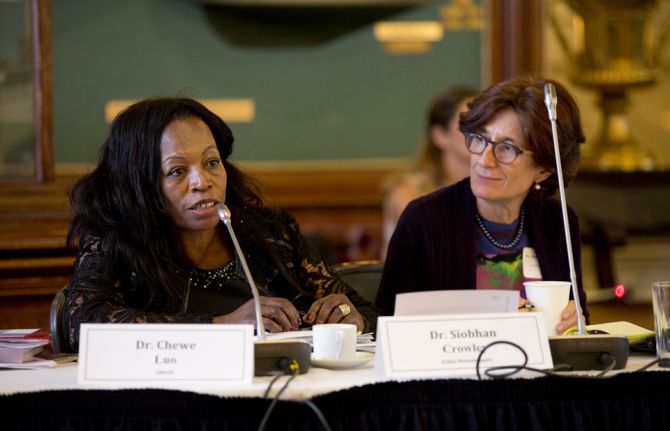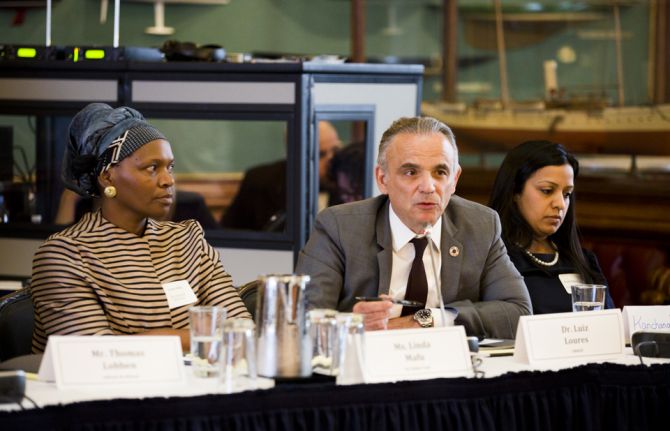





Update
Call issued for global partnership to end paediatric AIDS
06 June 2016
06 June 2016 06 June 2016African health ministers, leaders of paediatric HIV treatment programme implementers, philanthropic foundations, civil society and private sector partners convened in New York, United States of America, on 6 June to celebrate successes in closing HIV treatment gaps for children and to call for an expanded global partnership to build on this momentum to end paediatric AIDS.
Many countries have made important strides towards ending paediatric AIDS, but major challenges persist. Even as the number of children newly infected with HIV continues to decline, only about half of HIV-exposed children are tested for HIV within the first two months of life and only 30% of children living with HIV are linked to HIV treatment in a timely manner. Because far too many children living with HIV begin treatment too late, children are far more likely than adults living with HIV to die of AIDS-related illnesses.
At a major global ministerial meeting in Abidjan, Côte d’Ivoire, in May, health ministers from Africa endorsed a Fast-Track approach for children. This approach calls for reaching a 95% coverage of antiretroviral therapy for both pregnant women and children living with HIV by 2018. By reaching this target, the world could effectively end paediatric AIDS by 2020—one decade earlier than the elimination goal for the epidemic as a whole.
To reach these ambitious targets, attendees at this week’s meeting in New York emphasized the importance of a renewed, expanded, inclusive global partnership to close the paediatric HIV treatment gap. During an interactive conversation among the meeting participants, speakers emphasized the importance of involving families, communities and civil society organizations. There was also agreement regarding the need to engage the private sector in efforts to develop new paediatric treatment tools and fund programmes to close gaps across the continuum of care for children. The Medicines Patent Pool, which has prioritized paediatric HIV treatment in its negotiations of licences for the generic manufacture of priority antiretroviral medicines, is an example of how innovative approaches to private sector involvement can contribute to improved access to essential treatments.
Meeting attendees stressed the need for improved coordination of the many efforts being undertaken to address various aspects of paediatric HIV treatment. At the Abidjan meeting, health ministers endorsed efforts to maximize coordination in the paediatric AIDS arena.
To achieve the Fast-Track Targets for children—and to sustain these gains over time—new resources will be needed. Several countries are taking steps to increase domestic allocations for paediatric HIV treatment. Namibia, for example, covers 60% of its national AIDS response with domestic resources, and Felix Kabange Numbi, Minister of Public Health for the Democratic Republic of the Congo, reported that his country is pledging to increase domestic resources for AIDS.
It was agreed that philanthropy offers a potentially important avenue to generate new resources for paediatric HIV treatment. ELMA Philanthropies, for example, is allocating US$ 12.5–15 million per year for at least the next three years to support HIV treatment programmes for children, with a comparable amount to be invested in supportive programmes for childhood development.
Quotes
"We must build on our momentum to finally end the AIDS epidemic once and for all. The outcomes across the continuum of care for children need to be strengthened."
“We need a new solidarity. We need a new movement that focuses on ending paediatric AIDS. This new movement is about ending inequities, it is about social justice.”
“One person, one country, one company can change the world. I know we are going to reach our global goals for ending paediatric AIDS.”
“There is no mystery about what we need to do. We need a resurgence of political will and to zero in on reaching the mothers, infants, children and adolescents who are being left behind.”
“It is unacceptable to deny children their right to a chance at life. If we fail to build on recent momentum in order to end paediatric AIDS, both history and the world’s children should judge us harshly.”
“We need more consistent communication among partners working on paediatric HIV treatment, and our sense of accountability needs to be aligned so that it is fit for our objective to end paediatric AIDS.”
“Governments can do many things well, but there are some things we don’t always do well. We can look to our private sector partners for the introduction of new technologies and for better ways to hold ourselves accountable.”



